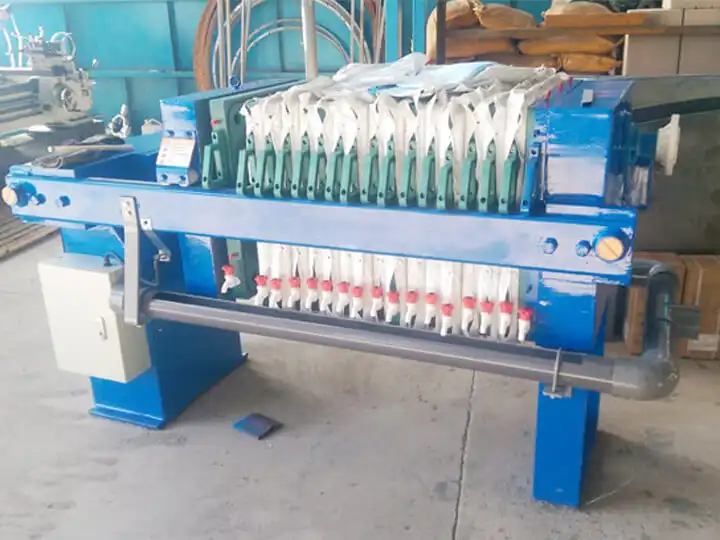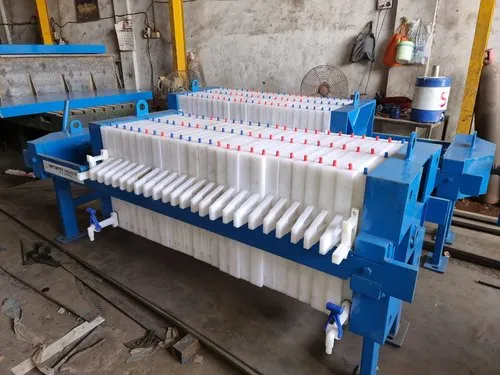Posted on November 8, 2023
Enhancing Sludge Dewatering Efficiency with a Filter Press
Discover the benefits of using a filter press for efficient sludge dewatering. This comprehensive guide provides insights into the functionality of a filter press and its role in separating liquid and solid components from sludge.
Understanding the Filter Press for Sludge Dewatering
A filter press is a specialized equipment used in sludge dewatering processes. It operates by applying pressure to sludge, separating the liquid (filtrate) from the solid components.
The filter press consists of a series of plates with filter cloths that retain the solids while allowing the filtrate to pass through. This versatile equipment offers several advantages for sludge dewatering applications.
Key Benefits and Applications of a Filter Press
Efficient Solid-Liquid Separation: The filter press effectively separates liquid and solid components, resulting in a high degree of dewatering. It enables the extraction of a significant amount of water from the sludge, reducing its volume for disposal or further treatment.
Versatile Application: Filter presses are widely used across various industries, including wastewater treatment plants, mining operations, chemical manufacturing, and food processing. They are suitable for dewatering different types of sludge, such as municipal, industrial, and biological sludge.
Operating Considerations and Successful Applications
Proper Filter Cloth Selection: Choosing the appropriate filter cloth is crucial for efficient sludge dewatering. Factors such as particle size, chemical composition, and desired filtration efficiency should be considered to ensure optimal performance.
Pressure and Cycle Time Optimization: Adjusting the pressure and cycle time of a filter press can enhance dewatering efficiency. Proper optimization allows for the removal of more water from the sludge, resulting in a higher cake solids content.

Example Application:
For example, in a wastewater treatment plant, a filter press is used to dewater the sludge generated during the treatment process. By applying the appropriate pressure and selecting the right filter cloth, the filter press efficiently separates the water from the sludge.
Producing a drier cake with reduced volume. The filtrate can be recycled or further treated, while the dewatered sludge can be easily disposed of or used for beneficial purposes, such as fertilizer production.
Conclusion:
In conclusion, utilizing a filter press for sludge dewatering provides numerous benefits, including efficient solid-liquid separation and versatile application across various industries. By considering factors such as filter cloth selection, pressure optimization, and cycle time adjustment, you can enhance the performance of the filter press and achieve optimal dewatering results.
Real-life applications demonstrate the successful utilization of filter presses in wastewater treatment plants and other industries. Streamline your sludge dewatering process and improve overall efficiency by incorporating a filter press into your operations.


